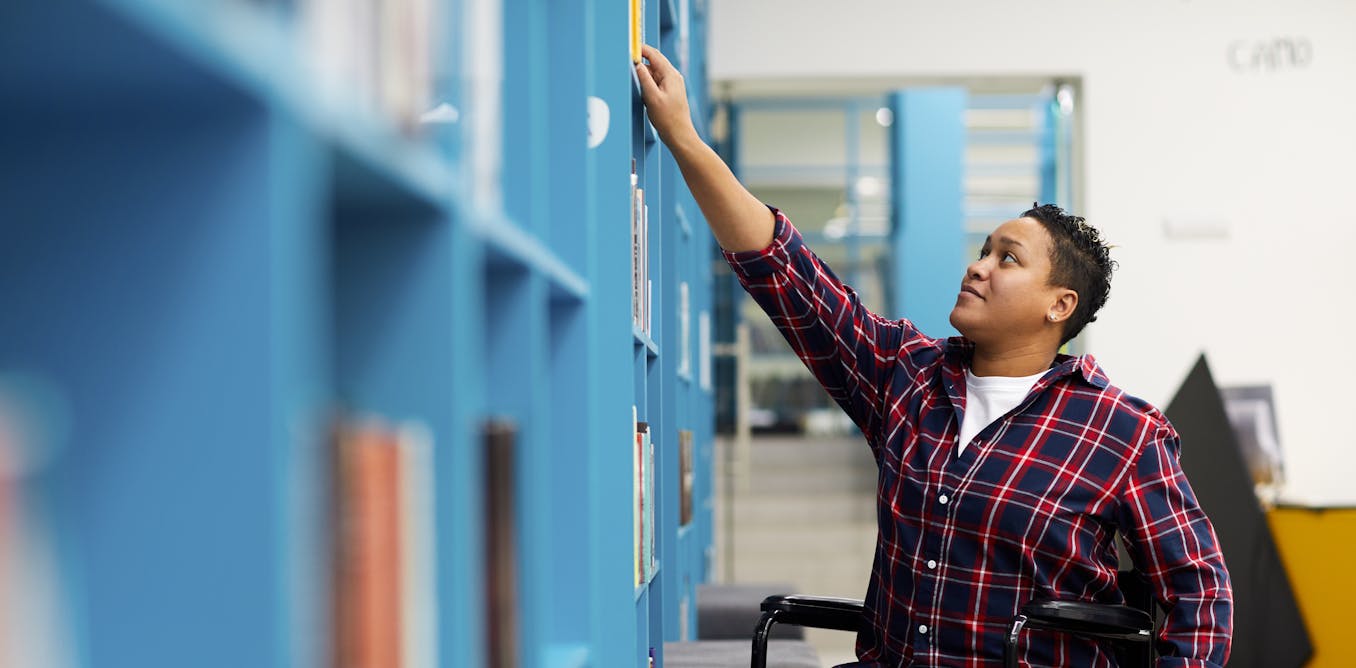The number of students in England who declared they have a disability increased by 46% over the five years from 2016-17 to 2020-21. Students with disabilities now make up just over 15% of the student body.
These disabilities include learning disabilities, mental illnesses and physical disabilities.
The transition to college is not always easy for these students: they face pressure to choose the right courses, adapt to increasing expectations of independence, integrate into society, and thrive as college students.
Furthermore, higher education is not always easily accessible to students with disabilities, and some have expressed concern that inclusive education in higher education is not a priority.
Our study used personal interviews to explore the experiences of seven students with different physical needs when they started university. Participants attended a range of universities across the UK, and some had attended more than one university. We asked them how they decided where to go to university and about their personal experiences as university students on their chosen courses.
Encountering a Barrier
Some students who attended open days before enrolling at university found themselves limited in the choice of academic courses offered by colleges and universities because they felt they could not accommodate their physical needs. One student claimed that because they use a wheelchair the university “didn’t want to get to know me”. They said:
I have been to a few campuses that are not disability friendly, and the disability access is pretty bad.
Students also experienced challenges at their chosen universities. Living spaces were poorly wheelchair accessible, lecture halls were difficult to access, and elevators frequently broke. Issues with both accommodation and study spaces affected both their academic and social lives. Regarding on-campus accommodation, one student said:
I could barely get through the door. [in my wheelchair] And then there was literally… a bed, and then a desk, and that was it, and I just… I couldn’t even turn around.
Some of the students we spoke to praised the university’s central student services team for the dedicated time they were given when they first arrived at university.

Students praised the university’s central support services. dotshock/Shutterstock
Students were given the opportunity to discuss their personal needs and a range of reasonable adjustments were proposed which were then formally documented in an Individual Support Plan – a summary document which sets out details of the relevant support and adjustments agreed to meet the student’s needs, and is prepared by the College’s Disability Advisor in collaboration with the student.
Not involved
However, in the courses they were taking, some students found themselves having to repeatedly tell instructors about their disabilities and ask for accommodations because instructors were not aware of the students’ disabilities or prepared to accommodate their needs.
As a result, some students were restricted from taking certain electives, limiting their curricular choices, and some were excluded from participating in hands-on activities and field trips. As one student put it:
They made no effort to involve me at all, I just waited an hour and a half for it to finish.
The students we spoke to were keen to find practical solutions, one of which was for universities to hold open days specifically for students with disabilities, which would not only give students the confidence to explore every nook and cranny of campus and identify potential issues, but also a potential opportunity to meet and connect with their peers.
Furthermore, students believe that universities should consult with students with disabilities when assessing the accessibility of both the campus environment and the courses offered. One student stated:
Many of the problems [that] A lot of the systems were built by able-bodied people, so no one bothers to consult us about what would actually be useful, and so there’s a lot of stuff that doesn’t work, and a lot of stuff that needs to be in place that isn’t.
Giving students with disabilities a voice here empowers them to play important decision-making roles in areas that directly affect them.

